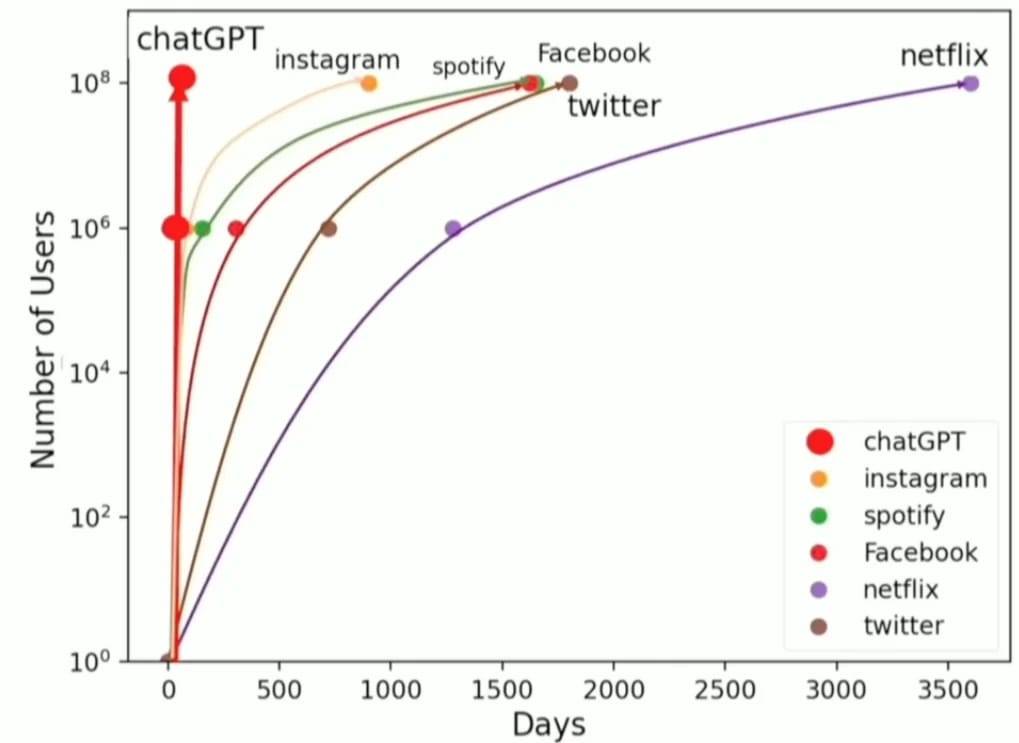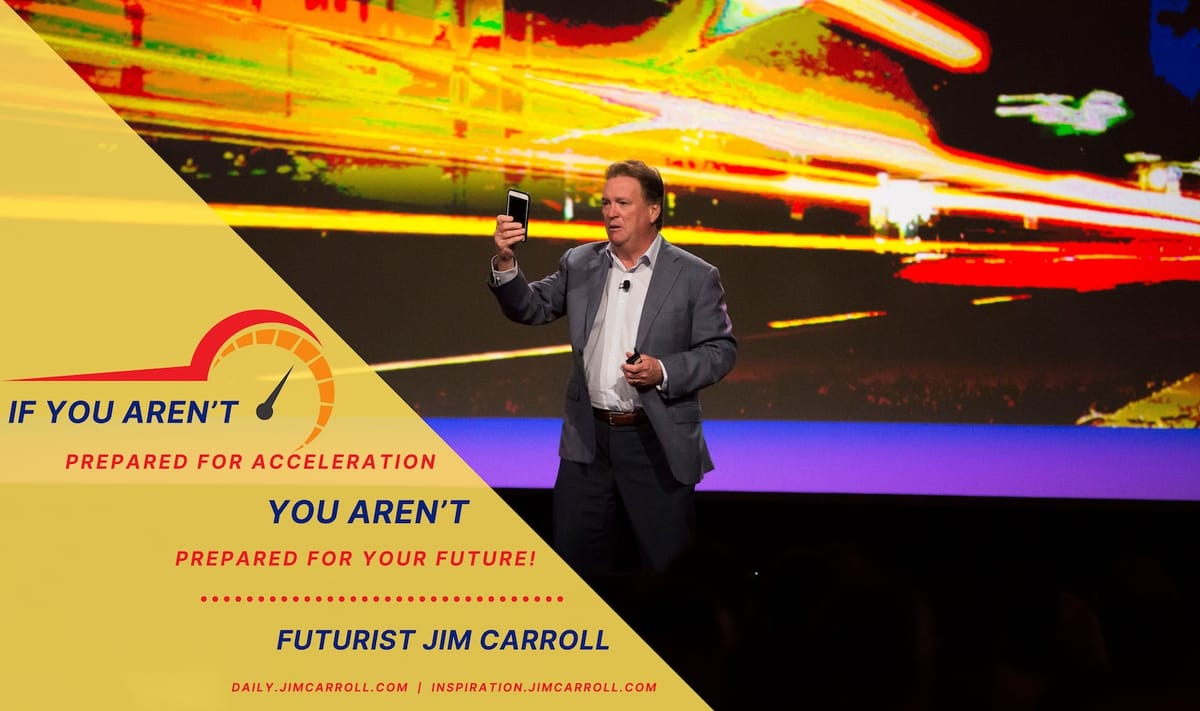"If you aren't prepared for acceleration you aren't prepared for your future!" - Futurist Jim Carroll
On March 19, 2012, Amazon acquired the robotics maker Kiva. It had 1,000 robots. Today, it has more than 750,000 in use, with plans for many, many more.
In 2007, in the year of launch, there were about 6 million iPhones in use. By 2012, there were 145 million. Today, it's estimated that there are some 1.4 billion in use around the world.
One year after Facebook was launched in 2004, it had 5.5 million users. By 2012, there were 1 billion worldwide. today? About 3 billion.
In 2013, there were about 25,000 Tesla vehicles sold. By 2018, it was 1/2 million, and last year, almost 4 million.
There were 10 million users of Instagram in its launch year of 2010. Today? Nearly 2 billion monthly active users
Airbnb? 21,000 guest stays in 2009. Five years in? 2 million. Today, more than 1 billion.
TikTok? 100 million on launch in 2016, and 1.8 billon today.
ChatGPT? Check the graph - it's the fastest-growing technology adoption rate, ever.

How about the cost of sequencing the human genome - which has a profound impact on medical science? In 2001l, it was about $100 million. By 2012, $10,000. Today? About $200.
The cost per transistor in an integrated circuit in 1971? About $1. Ten years later, ten cents. Today? Less than $0.000005.
Solar energy? In 1977, it cost $76 per watt By 1997, $5 per watt. Today? About 20 cents.
3D printing? In 2010, about $50 per cm³. That dropped to $5 per cm³ by 2016,. and about 50 cents today.
Battery storage technology costs were about $1,100 per kWh in 2010, dropping to $156 per kWh by 2019 and less than $100 today.
The point of all this is that we live in exponential times, faster is the new reality, and slow can be a corporate and career death sentence.
When guys like me say 'the future belongs to those who are fast,' we aren't just stating it for the fun of it. We're speaking to reality.
Futurist Jim Carroll speaks to the need to think big, start small, and scale fast. He emphasizes the fast part in his keynotes.

